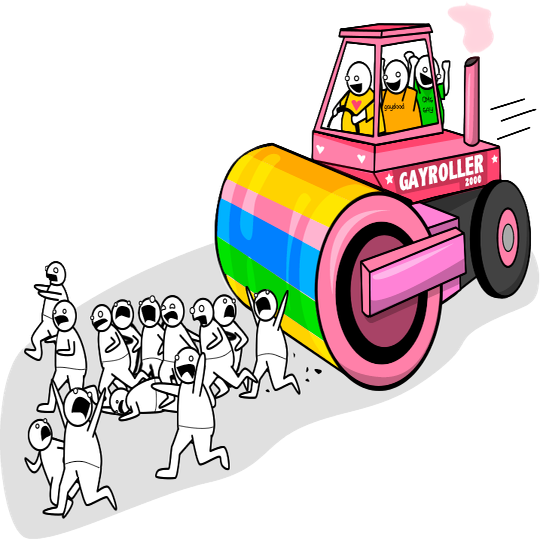I’m not sure if this is the best place but I don’t know where else I could talk about something like this. I know that my style of masculinity is toxic but I’ve never gotten good advice on how to overcome it as a trans man.
The assumption that trans men don’t have toxic masculinity because “they got socialized as women” is a common one in trans spaces and not only does it not apply to me, the implication that trans men are softer men pisses me off and digs me deeper.
Lore time: I internalized masculine norms throughout my isolated childhood. I knew and insisted I was a boy from an early age and my behaviour got me isolated and bullied by my female peers. I was also mistreated a lot for being queer.
My main problem is being insecure because of dysphoria combined with the transphobia I’ve received, pushing me to toxic competitive behaviour that runs the risk of alienating my friends. However, compared to the attitudes I’ve faced and still face in real life, affirmation from queer spaces about how men don’t need to be one way feel detached from reality. How can I not be insecure when I’ve been bullied for my whole life and none of that would’ve happened if my body wasn’t female? If I said that doesn’t matter wouldn’t it be cope?
Tl;dr what do when toxically masculine as a trans man in very transphobic irl corcumstances? I would especially appreciate examples of masculine-presenting men who didn’t engage in masculinity as a competition. If post is too big wall of text or just too many personal details tell me and I’ll trim.


It seems like you’re just insecure in your identity (imposter syndrome is very common amongst trans folks) and you’re projecting. I don’t really have much in the way of advice about the insecurity aspect (I’ve been on hormones just over 4 years and still often feel like I’m not good enough and worry a lot about how others perceive me), but it seems that you have an awareness of your thoughts and behaviours and want to change them.
I would say, keep being mindful of yourself and challenging your behaviours when you notice them. Maybe some kind of support group could be helpful too, where you can see other people being vulnerable and hopefully learn to talk about your problems and insecurities and deal with them in a more helpful manner. There are quite a few (usually gendered) mostly allocishet groups in my area, though I personally feel much more comfortable in trans-only groups. The trans groups tend to break by age (-18, 18-25, 25-40, etc) and sometimes by trans masc / trans fem.